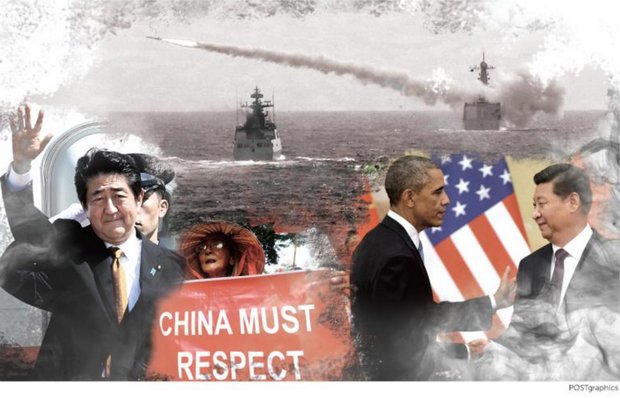Showing 1 - 9 of 9
Reshuffle cements Srettha's grip
News, Thitinan Pongsudhirak, Published on 06/05/2024
» After eight months at the helm, Prime Minister Srettha Thavisin staged a much-anticipated cabinet reshuffle with unexpected drama and unsurprising consolidation. As head of a coalition government, Mr Srettha appears more "prime ministerial" as the reshuffle has strengthened his hand to implement the ruling Pheu Thai Party's flagship policies.
The anatomy of a very tricky election
News, Thitinan Pongsudhirak, Published on 29/03/2019
» Thailand's first election in nearly eight years was supposed to bring some closure to a self-appointed military government and clarity to the country's democratic future. Instead, it has generated much controversy and probable continuity for the incumbent military regime with murky political directions ahead. Central to the questions and outcomes surrounding the poll on Sunday is the Election Commission (EC). Its actions and interpretations of events will have much to say about what happens next.
Will Asia-Pacific tensions lead to conflict?
News, Thitinan Pongsudhirak, Published on 26/08/2016
» There is now a consensus among practitioners and analysts alike that the rules and institutions that have governed international affairs so effectively since the end of World War II are increasingly dysfunctional or altogether malfunctioning. This alarming phenomenon is broadly referred to as the "unravelling" and "disorder" of the global system. It afflicts the world trading system, featuring elusive multilateral agreements, and the international financial system, beset with regular bouts of crisis and disruptions.
Divisiveness of the Trans-Pacific Partnership
News, Thitinan Pongsudhirak, Published on 16/10/2015
» Although the full text of the Trans-Pacific Partnership (TPP) has yet to be publicly released, the recently announced trade pact among 12 nations in the Asia-Pacific has already caused shockwaves around the world.
Asia-Pacific consequences of global disorder
News, Thitinan Pongsudhirak, Published on 21/08/2015
» As the rules and institutions that were crafted after the Second World War increasingly unravel, tensions and fissures in the global system will become more salient.
Global disarray as institutions falter
News, Thitinan Pongsudhirak, Published on 17/08/2015
» The international system as we know it is unravelling. Rules and institutions that were set up seven decades ago no longer hold the same weight and authority as they used to. As we grapple with an exacerbating global disorder, established powers and players and old rules and institutions need to be revamped and reinvented to accommodate new realities. Otherwise global tensions will mount, most probably accompanied by confrontation and conflict.
TIP shows a Thai-US alliance under strain
News, Thitinan Pongsudhirak, Published on 31/07/2015
» That Thailand has remained on the United States' Tier 3 in Trafficking in Persons list is unsurprising. Even the government of Gen Prayut Chan-ocha has accepted the Tier 3 designation with resignation in the hope of an upgrade in future. What is more interesting is the trend in Thai-US relations over the past decade.
Discipline key to avoiding financial crisis
News, Thitinan Pongsudhirak, Published on 24/07/2015
» Without exception, financial blow-ups require commensurate bailouts. The stories across global financial crises are fundamentally similar, and the ensuing blame game the same, from Greece's ongoing turmoil to Thailand's implosion almost two decades ago. Notwithstanding countless post-mortems so far and those on the way, the inescapable and essential lessons from the Greek debacle are simple: Beware of indebtedness, and incur debt with discipline.
Language is way forward in deep South
News, Thitinan Pongsudhirak, Published on 03/07/2015
» In multi-ethnic and multi-cultural societies, language is about more than communication. It is about recognition and accommodation, power and power-sharing. When society fosters power-sharing and forges compromise and consensus to underpin societal cohesion and achieve relative peace at home, the role of official and national languages can be powerful and paramount.











